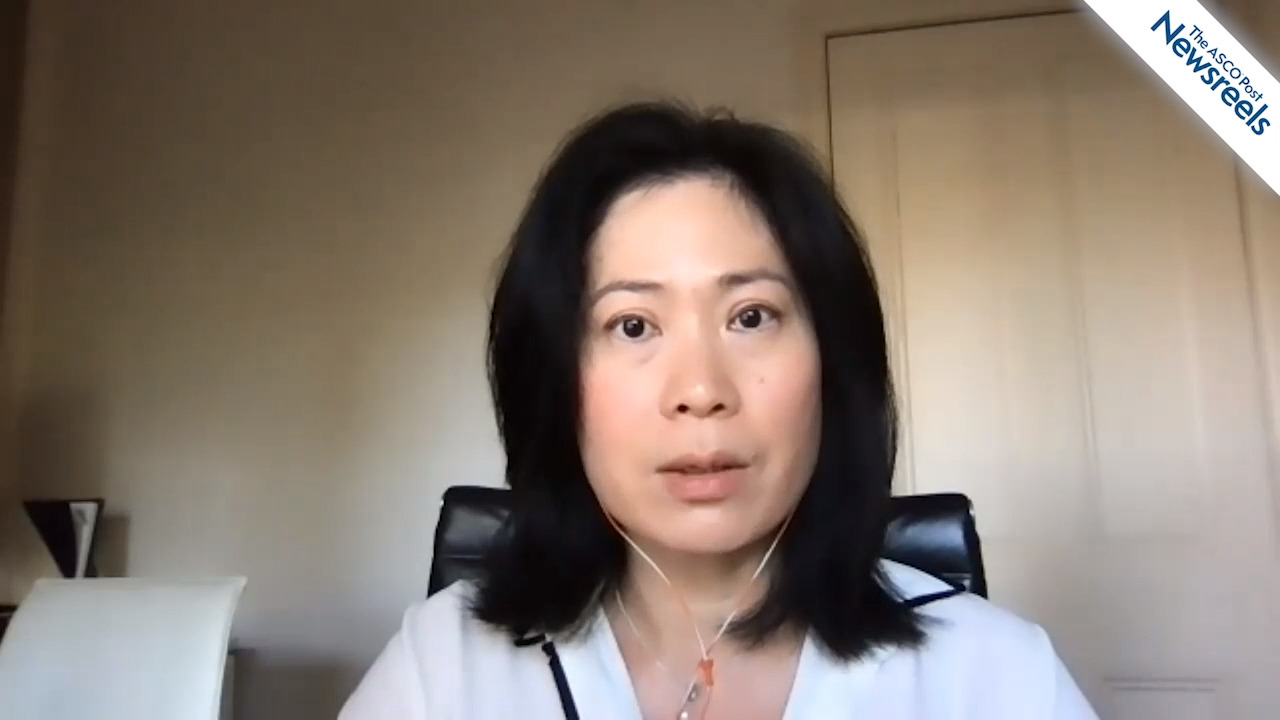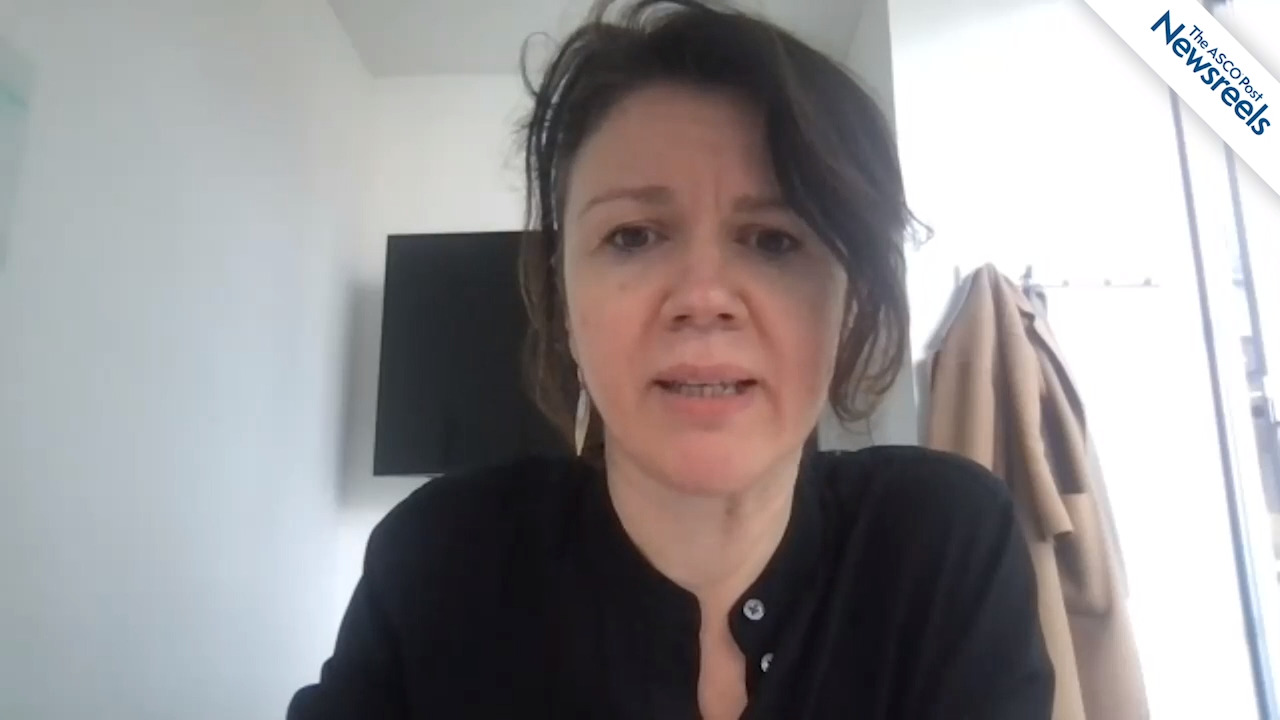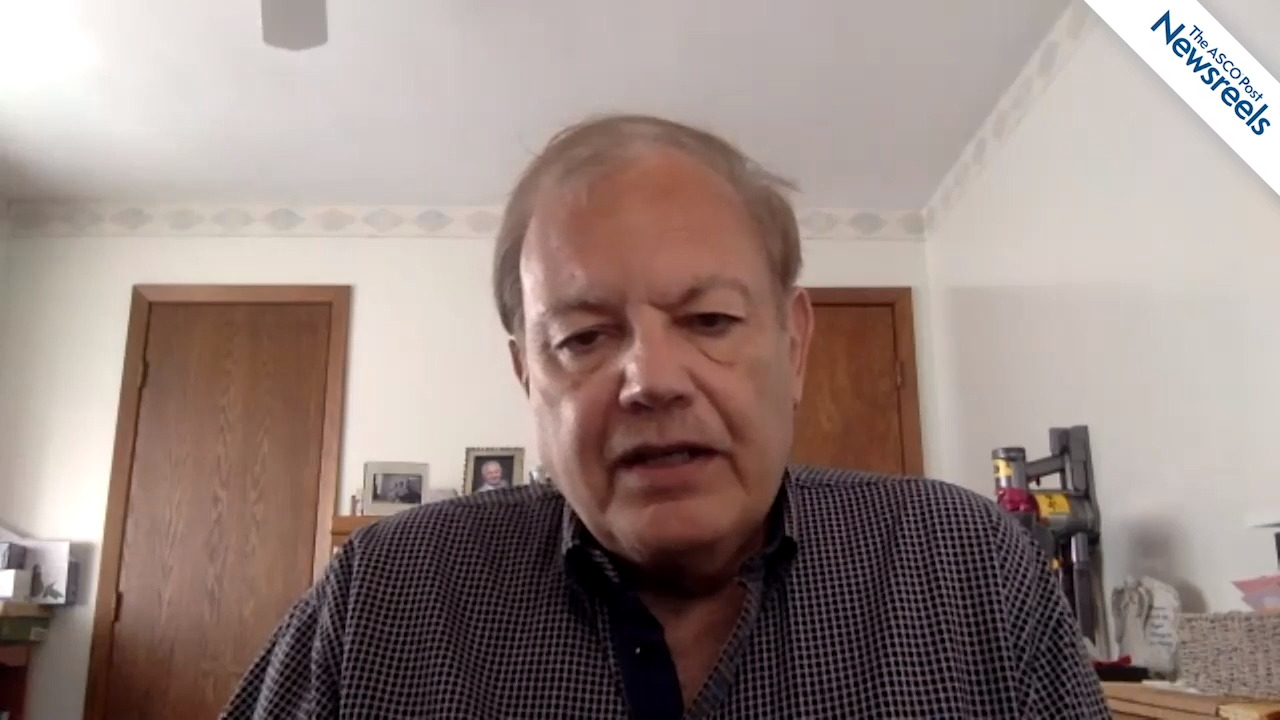Matthew J. Matasar, MD, on Indolent NHL: New Data on Copanlisib Plus Rituximab
AACR Annual Meeting 2021
Matthew J. Matasar, MD, of Memorial Sloan Kettering Cancer Center, discusses phase III results of the CHRONOS-3 trial, which showed that copanlisib plus rituximab led to a 48% reduction in the risk of disease progression or death compared with placebo plus rituximab in patients with relapsed indolent non-Hodgkin lymphoma (Abstract CT001).
The ASCO Post Staff
Linda T. Vahdat, MD, MBA, of Memorial Sloan Kettering Cancer Center, discusses results of a phase II trial designed to test the concept that targeting the tumor microenvironment by depleting copper may prevent metastases, essentially disrupting the infrastructure that contributes to tumor spread.
The ASCO Post Staff
Vivek Subbiah, MD, of The University of Texas MD Anderson Cancer Center, discusses data on selpercatinib that showed promising activity across a variety of RET fusion–positive cancers, including treatment-refractory gastrointestinal malignancies. This analysis highlights the need for genomic profiling to identify actionable oncogenic drivers.
The ASCO Post Staff
Jeanne Tie, MD, MBChB, of the Peter MacCallum Cancer Centre, discusses how to improve the current, somewhat imprecise, approach based on pathologic staging alone, used to select patients for adjuvant treatment. Circulating tumor DNA analysis after curative-intent treatment may detect minimal residual disease and might be used to predict recurrence and adjuvant treatment efficacy across multiple tumor types.
The ASCO Post Staff
Samra Turajlic, MBBS, PhD, of The Francis Crick Institute, discusses our limited understanding of metastases in terms of the timing of dissemination, the many metastatic phenotypes and varieties of seeding, as well as how the spread of cancer evades the immune system and resists treatment. Expanding this knowledge base is critical to better managing malignant disease.
The ASCO Post Staff
Dennis J. Slamon, MD, PhD, of the UCLA David Geffen School of Medicine, reflects on the ways in which breast cancer research pioneered the targeted treatment approach, as understanding of the basic biology of tumors deepened and new pathways were uncovered. He sees a future ripe with possibilities for new molecular targets to further improve outcomes for patients with breast cancer and other types of tumors.





